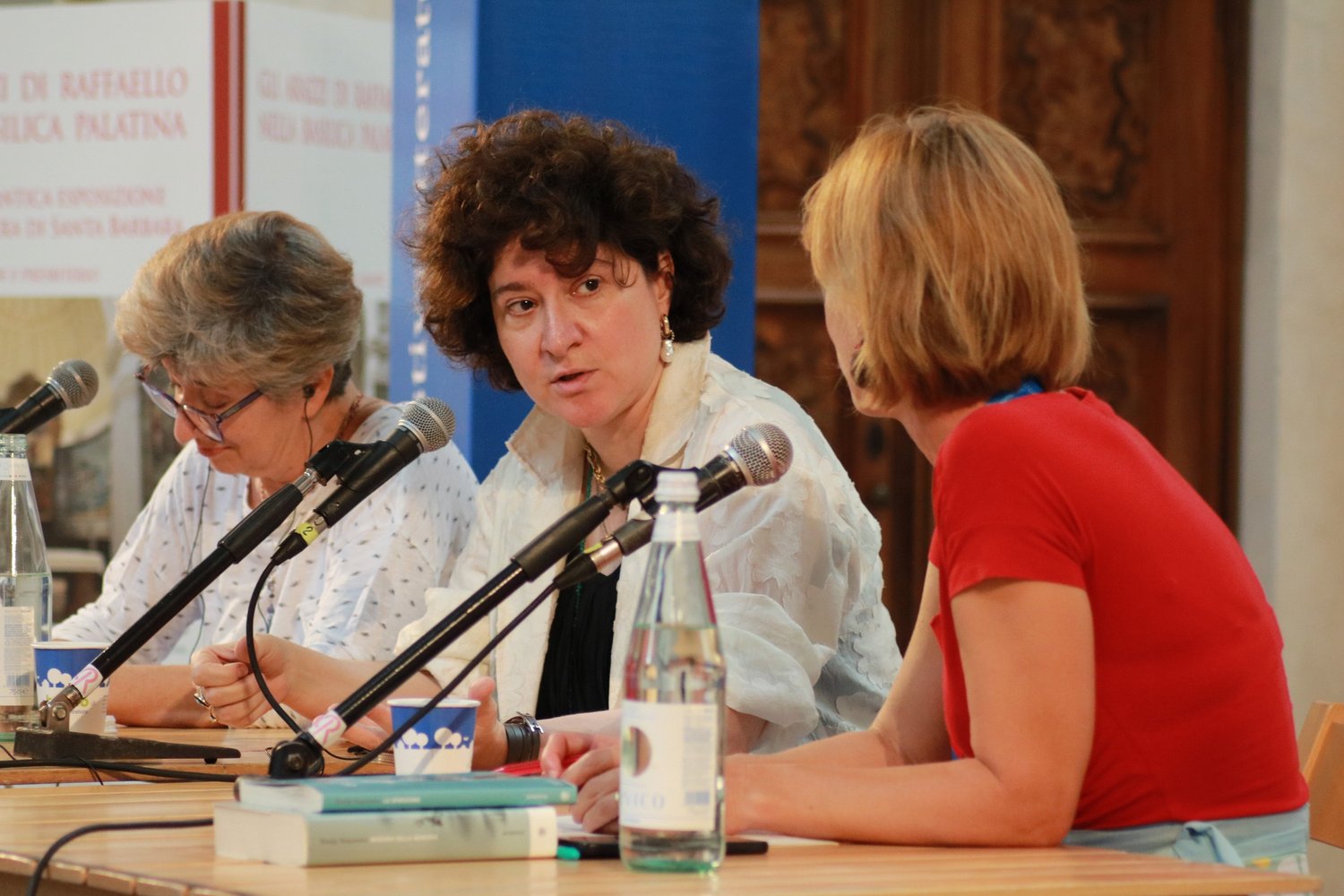



Suspended in Time
For the second time, Marija Stepanova attends Festivaletteratura, carrying with her a rich collection of reflections and critical insight. She begins her interview with a melancholic tone, contemplating the time we live in. According to Stepanova, the present forces us to say goodbye to the world as we know it, to our habits, and to our past selves. Humanity, she suggests, finds itself suspended in a gap between who we once were and who we may become; the only thing that remains is memory.
Memory, for Stepanova, may become a form of utopia, a place where the past is idealised yet unreachable. She admits that she struggles to look forward, always turning to what has been lost. At the same time, in recalling the biblical story of Lot’s wife, who looked back and was turned into a pillar of salt, Stepanova suggests that memory must not imprison us. It should be preserved, but we should carry it like we would "a souvenir", rather than a weight which prevents us from moving ahead.
The conversation with Elvira Mujčić turns to questions of belonging and national identity. “To what extent do we represent our country?” Stepanova asks. Since the beginning of Russia's latest invasion in Ukraine, this question has haunted her. Born and raised in Russia, she struggles with the paradox of a country whose cultural richness she deeply admires, but now finds completely unrecognizable. To claim “I am one of the good ones” or “I bear no responsibility” would be too easy, she says. Her decision to leave Russia was her way of refusing what was happening. Still, she acknowledges that she remains part of Russian society and must take responsibility, not by disowning her homeland, but by asking what went wrong.
Language, inevitably, is presented as a focal point of the interview. Stepanova observes that the Russian language has been weaponised, used as a tool to fuel the conflict between Russia and Ukraine. “What happens to language when it is used to kill?”, she asks. Blaming language itself makes no sense, it would be like blaming a candelabra when the latter's wielded to do harm, she quips. She views Russian as another victim of the war. Her mission, she declares, is to protect the language, to continue writing in Russian, and to love the language even in its wounded state.
When the conversation turns to writing, Stepanova confesses she could not reconcile herself with her work when the war broke. Writing felt impossible, unsatisfactory. Poetry, on the other hand, offered a fragile refuge. She compared poems to little houses built for travelers, temporary shelters that welcome wanderers, evoking memories of home and a fleeting sense of safety. Through poetry, she suggests, one can feel at home again - if only for a while.